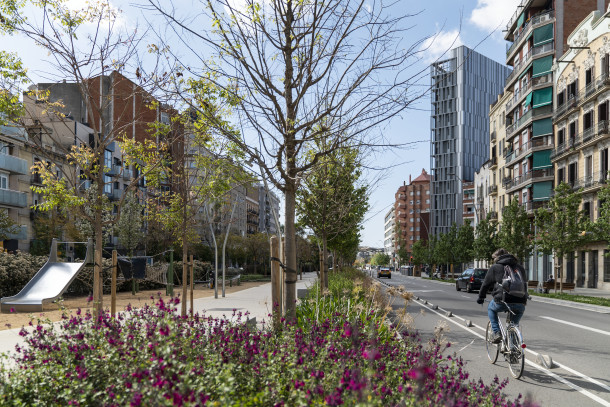
Ajuntament Barcelona, Flickr
Strategies for metropolitan internationalisation: moving towards public policy at the service of the people
As part of the project carried out between Metropolis and Barcelona City Council, a webinar was held on 15 December to provide insights into the importance of international action in city transformation. The kick-off point for the discussion was the question “Why is internationalisation important for metropolises?” Barcelona, Mexico City and Buenos Aires were all invited to share their views alongside the NGO Paradiplomacia.
“The most innovative metropolises are those that incorporate internationalisation not as a specific project, but as a public policy”, Nicolás Mancini
In response to the initial question, one of the key points that emerged from both the presentations and subsequent discussions was the way in which the design of city internationalisation strategies has evolved. A few years ago, the concept of internationalisation strategy was understood as a project designed to benefit the city by increasing its international reach. This same idea is increasingly seen as a public policy at the service of people and all the departments in the administration. This reflection was put forward by Nicolás Mancini, from Paradiplomacia, but—despite the differences between the cities—it was a recurring topic that came in all the presentations to some extent.
“Cities produce a wealth of knowledge, but the challenge for international action is how to capitalise on it. One of the ways we can do this is through support from city networks”, Felip Roca
Felip Roca, Director of International Relations at Barcelona City Council, added a further contribution on the evolution from project to policy, explaining the challenge of conveying to people the importance of implementing these types of projects and strategies. Although cities already have some experience in adapting this strategy to an international, national and regional level, there are still not enough proven strategies for internationalisation to be seen as having a positive impact on people’s quality of life. In the same vein, he reflected on the complex nature of capitalising on the knowledge produced in metropolises to enhance city internationalisation strategies. In this regard, there is a consensus that both national and international city networks play a very useful role in this process.
“The role of city networks has changed during the pandemic: they have become fundamental spaces to find responses to new circumstances”, Carolina Cuenca
Carolina Cuenca, Director General of International Relations and Cooperation for Buenos Aires, emphasised the role the pandemic has played as a catalyst for a change, which has also had repercussions on cities' internationalisation strategies. For Buenos Aires, international action is not only an opportunity to manage the city's agenda in terms of city positioning, but it can also act—with quite some power—as a department that can channel responses to the pandemic or any other emergency. This comes as metropolises seek spaces to collaborate and share experiences, rather than solely compete with each other on a national and international stage.
“City networks are very much needed to strengthen spaces for dialogue and exchange between politicians and experts”, Mariana Flores
Mariana Flores, Executive Director of Institutional Representation for Mexico City, highlighted the role played by metropolitan networks on an international level as platforms for exchanging knowledge and strategies of a political and technical nature. To do this, networks need to be flexible, while also having a solid enough structure to make the collaboration process as fluid and effective as possible. This has become even more evident with the pandemic, when pre-existing processes continued to produce results, but the flexibility of city networks allowed access to new opportunities and responses.
At the end of the discussion, Octavi de la Varga, Metropolis Secretary General, drew attention to the fact that, due to the complexity involved in these changes, it is important for the experts in charge of designing and carrying out internationalisation strategies to be professionalised in order to properly consolidate these processes. Along similar lines, he stressed that we must not to lose sight of the fact that any international action by cities must focus on improving people's quality of life.

